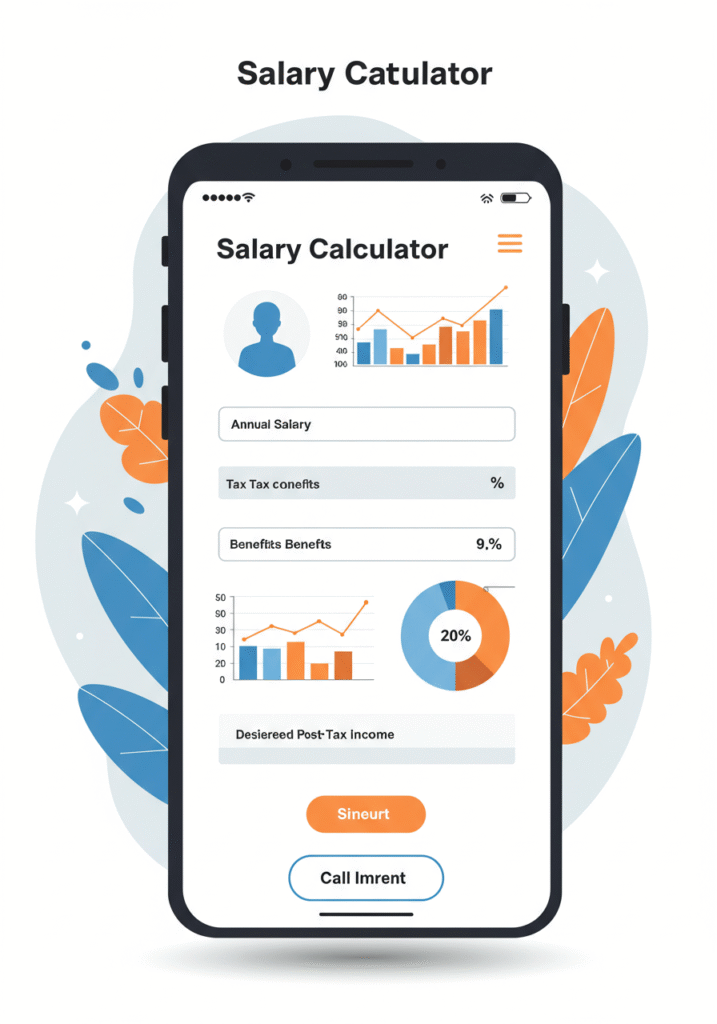State Paycheck Calculators
- Home
- State Pay Calculators
Accurate Paycheck Calculators for All 50 States
Understanding how much of your salary you’ll actually take home after taxes and deductions is critical — but it’s not always straightforward. That’s because paycheck calculations differ by state, and local tax policies and contribution requirements vary widely across the United States. Our state paycheck calculators are designed to give you precise, state-specific net pay estimates by factoring in everything from federal income tax, state income tax, and local taxes to benefit deductions, pre-tax contributions, and filing status.
Whether you’re a salaried employee in California, an hourly worker in Texas, or a freelancer in New York City, our calculators adapt to your location and personal payroll situation — all while staying compliant with IRS guidelines, FICA rules, and state regulations like SUTA and FUTA.
Why Use State-Specific Paycheck Calculators?
Every U.S. state has its own tax code and payroll structure. For example:
- Nine states—including Florida, Texas, and Washington—levy no state income tax at all.
- States like California, New York, and Oregon have progressive tax systems with multiple brackets.
- Cities like New York City and San Francisco may impose additional local payroll taxes.
- State Unemployment Tax Act (SUTA) rates differ, affecting employer payroll contributions.
By using our state-specific paycheck calculators, you can:
- Estimate your net pay (after taxes and deductions) accurately
- Compare gross vs. net income across different states
- Evaluate job offers in multiple locations
- Optimize your tax planning and retirement contributions like 401(k) or Roth IRA
- Understand how deductions for health insurance premiums, Flexible Spending Accounts (FSA), or Health Savings Accounts (HSA) impact your take-home pay
What Do Our Calculators Factor In?
Each state calculator uses localized data to ensure accuracy. We factor in:
- Gross Pay (salary, hourly wage, commissions, bonuses)
- Federal income tax rates using IRS tax brackets
- FICA taxes — including Social Security tax and Medicare tax
- Filing status: Single, Married Filing Jointly, Head of Household, etc.
- Employee Withholding Certificates (Form W-4) inputs
- State and local income tax rates
- Pre-Tax deductions (401(k), 403(b), HSA, FSA, Health Insurance)
- Post-Tax deductions (Loan repayments, Union dues, Meal deductions)
- Pay Frequency: Weekly, Bi-Weekly, Semi-Monthly, or Monthly

Who Should Use These Calculators?
Our salary calculators are designed for each person of the society irrespective of their jobs.
Employees
Perfect for employees who want to understand and track paycheck deductions.
Freelancers
Tools are also crafted for remote workers exploring state-specific tax obligations.
Employers
Also for employers who want to ensure accurate payroll across multiple states.
HR Professional
Perfect for HR persons aligning with collective bargaining agreements.
Maximize Accuracy: Customize Your Inputs
Each calculator allows for custom inputs related to your work and tax situation.
This makes our calculators more than just generic estimators—they’re advanced gross-to-net tools that empower users to take control of their income planning.
- Select your filing status
- Add dependents
- Specify Pre-Tax contributions like Roth 401(k)
- Input additional earnings (e.g., overtime pay, commissions, reimbursements)
- Adjust for voluntary deductions or loan repayments

Explore Paycheck Calculators by State
Our website has dedicated paycheck calculators for all 50 U.S. states. Each state page provides additional localized insights, including tax thresholds, exemption rules, and average salary benchmarks. Planning a move? Negotiating a job offer in another state? With just a few clicks, you can compare net pay by state and make informed decisions using tools that align with IRS, FICA, and state-level compliance. Whether you’re relocating, adjusting withholdings on your Form W-4, or just keeping tabs on your income, our calculators simplify the complexity of modern payroll.
- Arkansas Paycheck Calculator
Try Our Salary Paycheck Calculator
Want to calculate your pay based on your annual salary or adjust for benefit deductions? Have a look at the full-featured Salary Paycheck Calculator that complements these state-specific tools. It’s especially useful for salaried employees with complex compensation packages, including bonuses and employer-provided benefits.
In today’s multi-state workforce — where remote jobs, hybrid teams, and relocations are common — having a trustworthy, state-specific paycheck calculator is no longer optional. It’s essential. Use our tools to estimate your take-home pay accurately, understand local tax burdens, and stay financially prepared.
Start by selecting your state and unlock clarity in your paycheck — no guesswork, just accurate numbers.

Frequently Asked Questions
Paycheck taxes vary by state due to different income tax rates, local taxes, and state-specific deductions. Some states have no income tax, while others use tiered brackets. Local city taxes may also apply in places like New York City or San Francisco.
A state-specific calculator accounts for local tax laws, state income taxes, and deductions like SUTA or state disability insurance. This ensures more accurate net pay estimates tailored to your location.
Common deductions include federal income tax, state income tax, FICA taxes (Social Security and Medicare), and possibly local taxes. Pre-tax contributions (like 401(k), HSA, FSA) and post-tax deductions (like loan repayments or benefit premiums) also impact your take-home pay.
Yes, when updated regularly and based on IRS and state tax data. Our calculators incorporate current tax laws, filing status, pay frequency, and deductions to deliver reliable estimates.
SUTA (State Unemployment Tax Act) and FUTA (Federal Unemployment Tax Act) are employer-paid taxes. While they don’t reduce your take-home pay directly, they impact employer costs and payroll reporting.